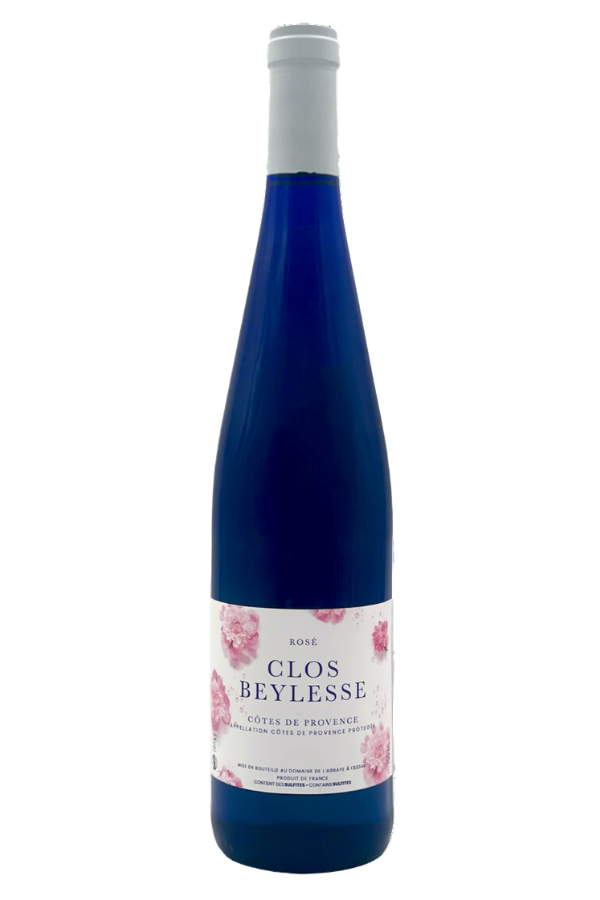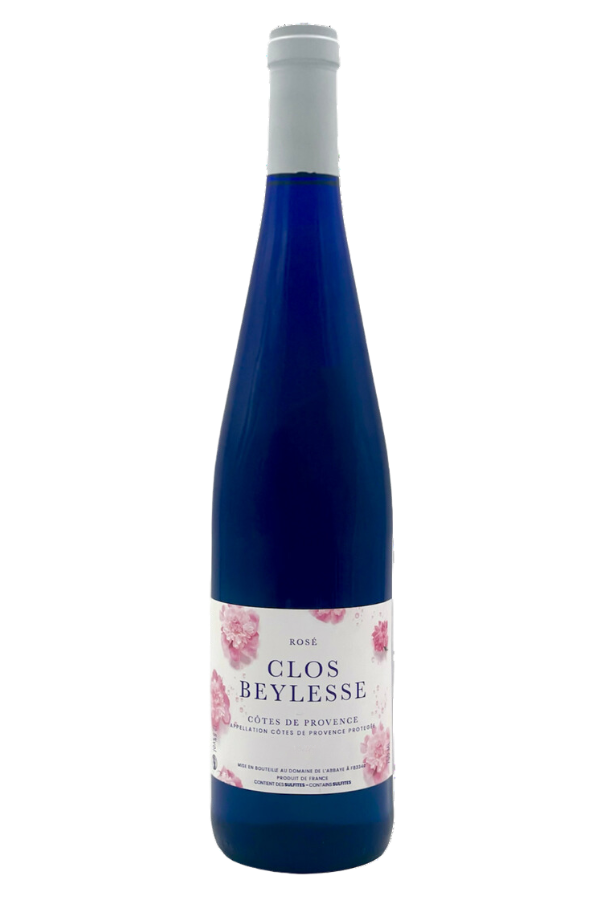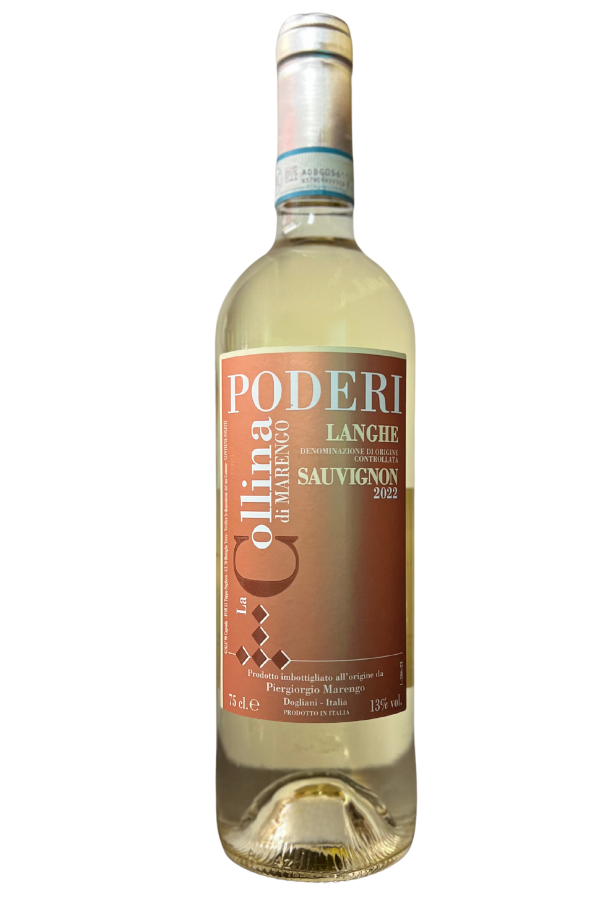Our Wine Selections

Venice
Asolo Prosecco Superiore D.O.C.G.
Produced by: AZ. AGR. Venetian Hills
Grape Varietals: Glera
Alcohol: 11%
Bottle Size: 750 ml

Clos Beylesse
2022 Rosé Wine. Cotes de Provence
Produced by: Franc Petit Viticulteur
Grape Varietals: Cinsault – Granache, Syrah-Rolle
Alcohol: 12.5%
Bottle Size: 750 ml

Clos Beylesse
2022 Rosé Wine. Cotes de Provence
Produced by: Franc Petit Viticulteur
Grape Varietals: Cinsault – Granache, Syrah-Rolle
Alcohol: 12.5%
Bottle Size: 1.5L

Poderi Collina Langhe
2022 Sauvignon Blanc D.O.C.
Produced by: Poderi Collina Lange
Grape Varietals: Sauvignon Blanc
Alcohol: 13.5%
Bottle Size: 750 ml

Poderi Collina Langhe Pianezzo
2020 Dogliani Superiore D.O.C.G.
Produced by: Poderi Collina Langhe
Grape Varietals: Dolcetto
Alcohol: 14.5%
Bottle Size: 750 ml

Poderi Collina Langhe
2019 Nebbiolo D.O.C.
Produced by: Poderi Collina Langhe
Grape Varietals: Nebbiolo
Alcohol: 14.5%
Bottle Size: 750 ml

Paolo Mazone Barolo
2019 Serralunga D’Alba D.O.C.G.
Produced by: Paolo Manzone
Grape Varietals: Nebbiolo
Alcohol: 14%
Bottle Size: 750 ml

Paolo Manzone Fiorenza
2021 Barbera D’Alba Superiore D.O.C.
Produced by: Paolo Manzone
Grape Varietals: Barbera
Alcohol: 14.5%
Bottle Size: 750 ml

Paolo Manzone Barbaresco
2020 San Giuliano D.O.C.G.
Produced by: Paolo Manzone
Grape Varietals: Nebbiolo
Alcohol: 14%
Bottle Size: 750 ml

Paolo Manzone Barolo Riserva
2017 Riserva D.O.C.G.
Produced by: Paolo Manzone
Grape Varietals: Nebbiolo
Alcohol: 14%
Bottle Size: 750 ml

Paolo Manzone Barolo Meriame
2019 Meriame Single Vineyard D.O.C.G.
Produced by: Paolo Manzone
Grape Varietals: Nebbiolo
Alcohol: 14%
Bottle Size: 750 ml

Paolo Mazone Barolo
2019 Serralunga D’Alba D.O.C.G.
Produced by: Paolo Manzone
Grape Varietals: Nebbiolo
Alcohol: 14%
Bottle Size: 1 L

Paolo Manzone Fiorenza
2021 Barbera D’Alba Superiore D.O.C.
Produced by: Paolo Manzone
Grape Varietals: Barbera
Alcohol: 14.5%
Bottle Size: 1L

Paolo Manzone Barolo Riserva
2017 Riserva D.O.C.G.
Produced by: Paolo Manzone
Grape Varietals: Nebbiolo
Alcohol: 14%
Bottle Size: 1L

Dorali Moscato
2022 Moscato D’Asti D.O.C.G.
Produced by: Beppe Marino
Grape Varietals: Moscato
Alcohol: 5%
Bottle Size: 750 ml

Dorali Brachetto
2022 Piemonte Brachetto D.O.C.
Produced by: Beppe Marino
Grape Varietals: Brachetto
Alcohol: 5%
Bottle Size: 750 ml

Dorali Moscato
2022 Moscato D’Asti D.O.C.G.
Produced by: Beppe Marino
Grape Varietals: Moscato
Alcohol: 5%
Bottle Size: 1 L

Dorali Brachetto
2022 Piemonte Brachetto D.O.C.
Produced by: Beppe Marino
Grape Varietals: Brachetto
Alcohol: 5%
Bottle Size: 1 L

Barbera Passito
2021 Vino Passito D.O.C.
Produced by: Beppe Marino
Grape Varietals: Barbera
Alcohol: 15%
Bottle Size: 750 ml

Vio
2022 Rossese D.O.C.
Produced by:Vio Giobatta
Grape Varietals: Rossese
Alcohol: 13%
Bottle Size: 750 ml

Vio
2022 Pigato D.O.C.
Produced by: Vio Giobatta
Grape Varietals: Pigato
Alcohol: 13%
Bottle Size: 750 ml

Corpo
2015 Amarone Della Valpolicella D.O.C.G.
Produced by: Canoso Societa Agricola SRL
Grape Varietals:
Corvinone, Corvina, Rondinella
Alcohol: 16%
Bottle Size: 750 ml

Corpo
2016 Amarone Della Valpolicella D.O.C.G.
Produced by: Canoso Societa Agricola SRL
Grape Varietals:
Corvinone, Corvina, Rondinella
Alcohol: 16%
Bottle Size: 750 ml

Terra
2018 Valpolicella Classico Superiore D.O.C.
Produced by:Canoso Societa Agricola SRL
Grape Varietals:
Corvinone, Corvina, Rondinella
Alcohol: 13.5%
Bottle Size: 750 ml

Verso
2020 Soave Classico Superiore D.O.C.G.
Produced by: Canoso Societa Agricola SRL
Grape Varietals:
Garganega
Alcohol: 13%
Bottle Size: 750 ml

Corpo
2015 Amarone Della Valpolicella D.O.C.G.
Produced by: Canoso Societa Agricola SRL
Grape Varietals:
Corvinone, Corvina, Rondinella
Alcohol: 16%
Bottle Size: 1L

Terra
2018 Valpolicella Classico Superiore D.O.C.
Produced by:Canoso Societa Agricola SRL
Grape Varietals:
Corvinone, Corvina, Rondinella
Alcohol: 13.5%
Bottle Size: 1L

Verso
2020 Soave Classico Superiore D.O.C.G.
Produced by: Canoso Societa Agricola SRL
Grape Varietals:
Garganega
Alcohol: 13%
Bottle Size: 1L

Magnificat
2019 Forli Cabernet Sauvignon I.G.T.
Produced By: Drei Dona
Grape Varietals:
Cabernet Sauvignon
Alcohol: 14.5%
Bottle Size: 750 ml

Il Tornese
2020 Forli Chardonnay I.G.T.
Produced by: Drei Dona
Grape Varietals:
Chardonnay
Alcohol: 14%
Bottle Size: 1L

Magnificat
2019 Forli Cabernet Sauvignon I.G.T.
Produced By: Drei Dona
Grape Varietals:
Cabernet Sauvignon
Alcohol: 14.5%
Bottle Size: 1 L

Montefalco Sagrantino
2017 D.O.C.G.
Produced by: Lorenzo Mattoni
Grape Varietals:
Sagrantino
Alcohol: 14.5%
Bottle Size: 1L

Dinamico
2020 I.G.T.
Produced By: Lorenzo Mattoni
Grape Varietals:
50% Sagrantino
30% Cabernet Sauvignon
20% Merlot
Alcohol: 14.5%
Bottle Size: 750 ml

Limaca
2020 Primitivo I.G.T.
Produced by: Cantina Storica Del Cardinale
Grape Varietals:
Primitivo Di Gioia Del Colle
Alcohol: 14%
Bottle Size: 750 ml

Donne Fitipaldi
2020 Bolgheri Rosso Superiore D.O.C.
Produced By:Donne Fitipaldi
Grape Varietals:
30% Cabernet Sauvignon
30% Merlot
30% Cabernet Franc
10% Petit Verdot
Alcohol: 14.5%
Bottle Size: 750 ml

Magnetic
2021 Bolgheri Rosso D.O.C.
Produced by: Donne Fitipaldi
Grape Varietals:
Cabernet Franc
Alcohol: 14.5%
Bottle Size: 750 ml

Donne Fitipaldi
2021 Bolgheri Rosso D.O.C.
Produced By: Donne Fitipaldi
Grape Varietals:
50% Cabernet Sauvignon
30% Merlot
10% Cabernet Franc
10% Petit Verdot
Alcohol: 14.5%
Bottle Size: 750 ml

Donne Fitipaldi
2021 Bolgheri Rosso D.O.C.
Produced By: Donne Fitipaldi
Grape Varietals:
50% Cabernet Sauvignon
30% Merlot
10% Cabernet Franc
10% Petit Verdot
Alcohol: 14.5%
Bottle Size: 1.5 L

Radicato
2015 Brunello Di Montalcino Riserva D.O.C.G.
Produced By: Caratelli
Grape Varietals: Sangiovese
Alcohol: 14.5%
Bottle Size: 750 ml

Radicato
2016 Brunello Di Montalcino D.O.C.G.
Produced by: Caratelli
Grape Varietals: : Sangiovese
Alcohol: 14.5%
Bottle Size: 750 ml
Contact Us
Frequently Asked Questions
DOC is an acronym for Denominazione di Origine Controllata, which means Controlled Designation of Origin in English. “It consists of a legally defined zone (defined by law) where grapes can be grown and producers must follow rigid production standards to produce their wines.” The ultimate goal of these production standards is to protect consumers from being sold lower quality wine by requiring wineries to follow strict guidelines about what they product and how they care for the grape vines themselves. These safeguards provide assurance that the wine purchased meets not only taste but also integrity requirements, meaning consumers can have peace of mind knowing they’re getting an authenticated Italian wine.
DOCG wines are “Denominazione di Origine Controllata e Garantita” and guarantee that the wine is produced in an area designated by law, that it has been bottled within the region of production and aged for at least two years, without being aged beyond ten years, before release.
DOCG wine classification is “The highest level in the Italian quality scales for wine. These wines are designated at the point of origin and controlled throughout production.”
DOCG wines are created by a careful selection of grapes and strict following of regional procedures. They must be aged at least two years before release (one year in oak barrels). For this reason, DOCG bottling is limited to those areas with high-quality grapes that can age well.
Red wine, if consumed moderately and slowly, can act as healthier antioxidant to prevent against cardiovascular diseases. Red wine is full of antioxidants that keep the immune system working at a healthy level. Antioxidants are very important to help protect your body against diseases like diabetes, osteoporosis, cancer, and even Alzheimer’s Disease. Drinking red wine in moderation (1-2 glasses per day) can also reduce blood pressure levels and triglyceride levels. There are many benefits to drinking red wine!
White wine might not be the best choice because it’s typically higher in calories from sugars like lactose. The sugar content is usually between 10% and 12%. Concentrated sweeteners add another 3% to the table. So a 1/2 glass contains about 5 grams – only slightly below the daily recommended maximum for refined sugars which is about 6 teaspoons or 25 grams.
Red wine contains a number of compounds such as flavonoids, resveratrol and Proanthocyanidins which present unknown benefits. Some studies have suggested that polyphenols found in red wine are responsible for the adaptive response to physical activity resulting in an increase in cardiovascular fitness. Consumption of one glass per day is also linked with a reduced risk of heart disease and dementia; two-three glasses per day shows no negative effects either. In addition, some research suggests that it might even help with weight loss.
Sweet wine can come in different styles including those that are light and creamy, like a port or an Italian Dolce. The alcohol content is typically between 10% – 15%. Dry red wine, on the other hand, contains 12% to 20% alcohol per volume and is all about acidity. With lower levels of sugar, dry red wine often has higher levels of tannins and potassium (salt). The less sugar you consume, often is considered better for your health.
Dry wines are wines with less than fourteen grams of residual sugar per liter. A dry wine is any wine with less than 14% potential alcohol by volume and with not more than 14 grams in total residual sugar per liter. Any grape variety can be produced as a dry or off-dry wine – it’s the winemaker’s personal decision how sweet they want to make their final product.
There are two elements of sweetness in wine, one that comes from adding sugar before bottling – sweet wines. And the other, which is naturally present in grapes – dry wines or botrytized wines with more complex flavors and aromas as a result. Dry wines typically range between 1 g/L (0%) and 0-10g/L (0-1%). Sweet wines are usually 10g/L or higher for the finished product before bottling, while most still range between 20 g/L to 24g/.04%.
Pumping air into wine (through an aerator) oxidizes it, which in turn creates new flavor compounds. In addition, as the wine is exposed to oxygen for a longer period of time, less sorbitol is formed; this higher oxidation ratio helps prevent the formation of sulfites that can cause astringency and harsh flavors. Finally then, because there’s more space between all the molecules through oxidation and they are not bound together so tightly anymore (i.e., due to lower pH), wines aerated at home will usually taste smoother and more mellow than wines that are not!

